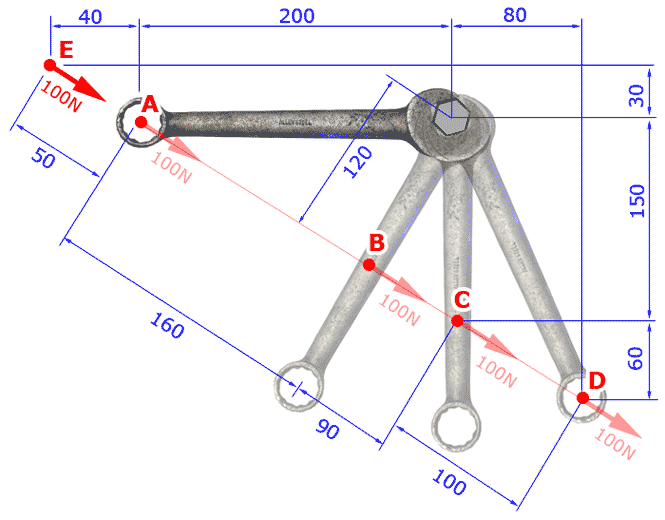In the context of simple machines, a moment refers to the turning effect or rotational force that is applied to an object around a fixed point, often referred to as a pivot or fulcrum. Moments are also known as torque. Imagine trying to open a door by pushing or pulling on the handle. The force you apply creates a turning effect that allows the door to rotate around its hinges.

Lever Arm:
To understand moments better, let’s talk about levers. A lever is a simple machine that consists of a rigid bar that can pivot around a fixed point. The fixed point is the fulcrum. One end of the lever is where you apply a force (input force), and the other end is where the load (object being moved) is located. The distance between the fulcrum and the point where you apply the force is called the “lever arm” or “moment arm.”
Calculating Moment:
The moment (or torque) exerted on a lever depends on two main factors: the force applied and the lever arm. The formula for calculating moment is:
Moment (Torque) = Force × Lever Arm
This means that the farther away the force is applied from the fulcrum, the greater the turning effect or moment. Even if you apply a small force, if you increase the lever arm, you can still create a significant moment.
Example:
Imagine you have a seesaw (a type of lever) with a fulcrum in the middle. On one side of the fulcrum, you place a heavy weight, and on the other side, you apply a smaller force by pushing down. If you push down closer to the fulcrum, you’ll need to use a larger force to lift the weight. However, if you push down farther from the fulcrum (increasing the lever arm), you’ll be able to lift the weight with a smaller force because you’re creating a greater moment.
Applications:
Moments are essential in various real-life applications. They’re used in tools like wrenches, where you apply a force to turn nuts and bolts. They’re also crucial in engineering and construction, helping design structures that can withstand various loads. Cranes, doors, and even bicycles utilize moments to function efficiently.
In summary, a moment in the context of simple machines refers to the turning effect or rotational force applied to an object around a fixed point, such as a pivot or fulcrum. Moments depend on the force applied and the lever arm, and they play a vital role in making many devices and structures work effectively.

